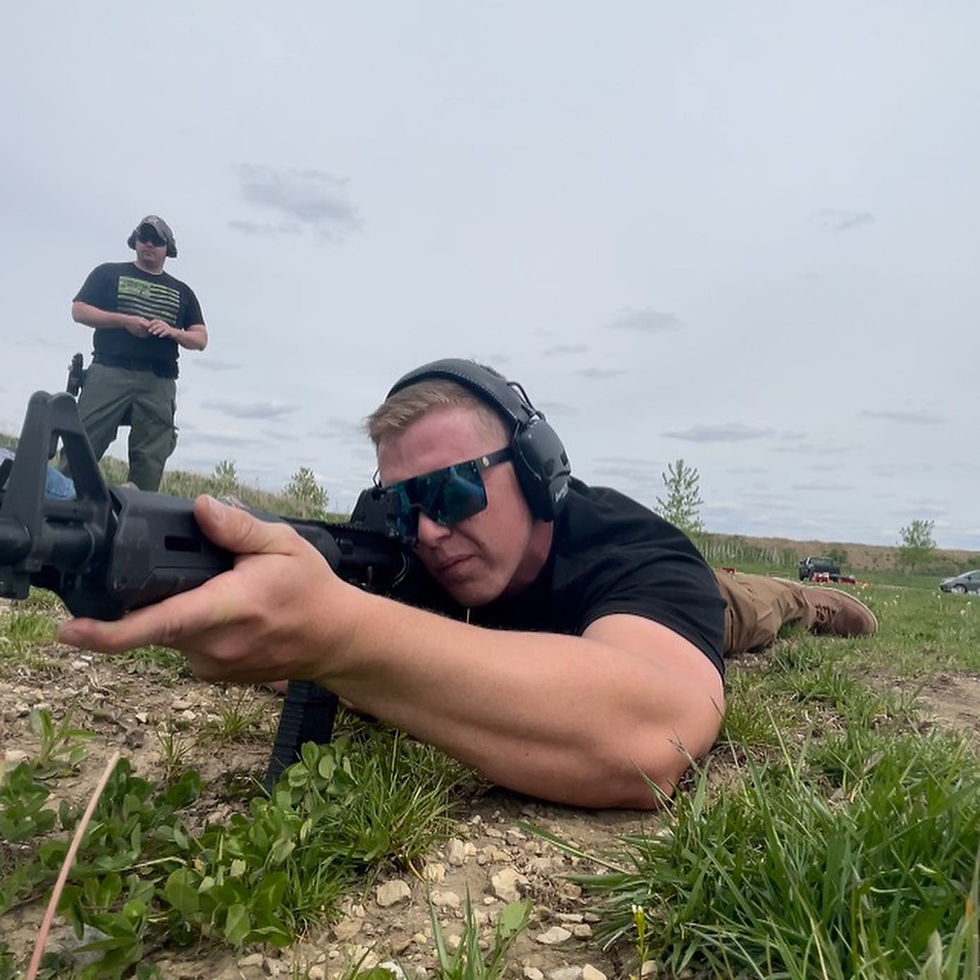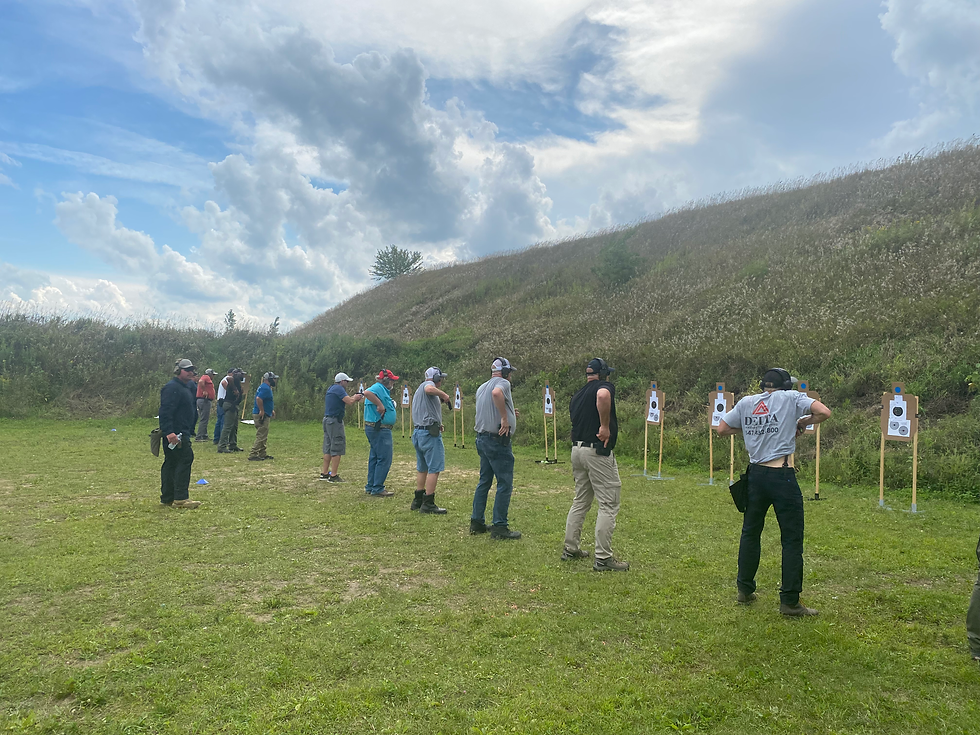Master Defensive Skills in Tactical Rifle Courses
- Lions Defense

- Nov 10, 2025
- 4 min read
Developing strong defensive rifle skills is essential for anyone looking to enhance their personal safety and tactical awareness. Whether you are a beginner or have some experience, mastering these skills can make a significant difference in real-life situations. Defensive rifle training focuses on precision, control, and situational awareness, all of which are critical for effective self-defense.
Investing time in a tactical rifle course can provide you with the knowledge and hands-on experience needed to handle a rifle confidently and responsibly. This article will guide you through the key aspects of defensive rifle skills and how to develop them effectively.
Understanding Defensive Rifle Skills
Defensive rifle skills go beyond just shooting accurately. They encompass a wide range of abilities that prepare you to respond effectively under pressure. These skills include:
Marksmanship: The ability to shoot accurately at various distances.
Weapon handling: Safe and efficient manipulation of the rifle.
Situational awareness: Recognizing and assessing threats quickly.
Movement and positioning: Using cover and positioning yourself advantageously.
Reloading and malfunction drills: Handling weapon malfunctions and reloading swiftly.
Each of these components plays a vital role in ensuring you can protect yourself and others when necessary. For example, practicing reloads under time pressure can help you maintain readiness during a critical moment.

Building Core Defensive Rifle Skills
To build a solid foundation, focus on the following practical steps:
1. Master the Basics of Marksmanship
Start with the fundamentals of shooting. This includes proper grip, stance, sight alignment, and trigger control. Consistent practice at the range will improve your accuracy and confidence.
Use dry-fire drills to practice trigger control without live ammunition.
Work on breathing techniques to steady your aim.
Practice shooting from different positions: standing, kneeling, and prone.
2. Develop Weapon Handling Proficiency
Safe and efficient weapon handling is crucial. Learn how to:
Load and unload your rifle safely.
Perform immediate action drills to clear stoppages.
Transition between firing positions smoothly.
3. Enhance Situational Awareness
Situational awareness means being alert to your surroundings and potential threats. Train yourself to:
Scan your environment regularly.
Identify cover and concealment options.
Anticipate possible threat vectors.
4. Practice Movement and Positioning
Effective movement can be the difference between life and death. Practice:
Moving quickly and quietly between cover points.
Shooting on the move while maintaining accuracy.
Using natural and artificial cover effectively.
5. Train Reloading and Malfunction Drills
Reloading under stress is a skill that requires repetition. Practice:
Tactical reloads to maintain a full magazine.
Emergency reloads when the magazine is empty.
Clearing common malfunctions like stovepipes or double feeds.

How a Tactical Rifle Course Enhances Your Skills
Enrolling in a tactical rifle course offers structured training that covers all the essential defensive rifle skills. These courses provide:
Expert instruction: Learn from experienced professionals who understand real-world scenarios.
Hands-on practice: Engage in live-fire exercises that simulate defensive situations.
Scenario-based training: Practice decision-making under pressure.
Feedback and improvement: Receive personalized coaching to refine your techniques.
For example, a course might include drills where you must engage multiple targets while moving between cover, teaching you to maintain accuracy and composure under stress.
Essential Gear for Defensive Rifle Training
Having the right equipment can enhance your training experience and effectiveness. Consider the following gear:
Quality rifle: Choose a reliable and comfortable rifle suited for defensive use.
Optics: Red dot sights or scopes can improve target acquisition.
Protective gear: Eye and ear protection are mandatory for safety.
Ammunition: Use consistent, quality ammunition for training.
Magazines: Carry extra magazines for reload drills.
Sling: A tactical sling helps manage your rifle during movement.
Investing in proper gear ensures you can focus on skill development without distractions or equipment failures.
Tips for Continuous Improvement
Mastering defensive rifle skills is an ongoing process. Here are some tips to keep improving:
Regular practice: Schedule consistent range time to maintain and build skills.
Join shooting groups: Training with others can provide motivation and new perspectives.
Stay physically fit: Strength and endurance improve your ability to handle the rifle and move effectively.
Study tactics: Read books and watch videos on defensive shooting and tactics.
Simulate stress: Practice drills that increase your heart rate and simulate real-life stress.
By committing to continuous learning and practice, you will become more confident and capable in defensive situations.
Preparing Mentally for Defensive Situations
Physical skills are only part of the equation. Mental preparedness is equally important. Defensive situations can be chaotic and stressful. To prepare mentally:
Visualize scenarios and your responses.
Practice controlled breathing to manage stress.
Develop a mindset focused on survival and quick decision-making.
Understand the legal and ethical responsibilities of using a firearm defensively.
Mental training helps you stay calm and effective when it matters most.
Expanding Your Defensive Skill Set
Once you have mastered the basics, consider expanding your skills to include:
Low-light shooting: Training with flashlights or night vision.
Shooting from unconventional positions: Such as barricades or behind vehicles.
Team tactics: Coordinating with others in defensive scenarios.
First aid: Basic trauma care in case of injury.
These advanced skills can further enhance your ability to protect yourself and others.
Mastering defensive rifle skills requires dedication, practice, and the right training. By focusing on marksmanship, weapon handling, situational awareness, and movement, you can become proficient in protecting yourself effectively. Enrolling in a tactical rifle course is a smart step toward gaining the knowledge and confidence needed for real-world defense.
With the right mindset, equipment, and continuous practice, you will be well-prepared to handle defensive situations with skill and composure.




Comments